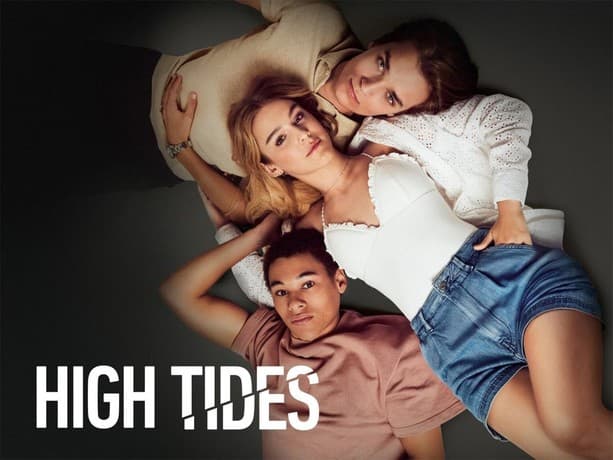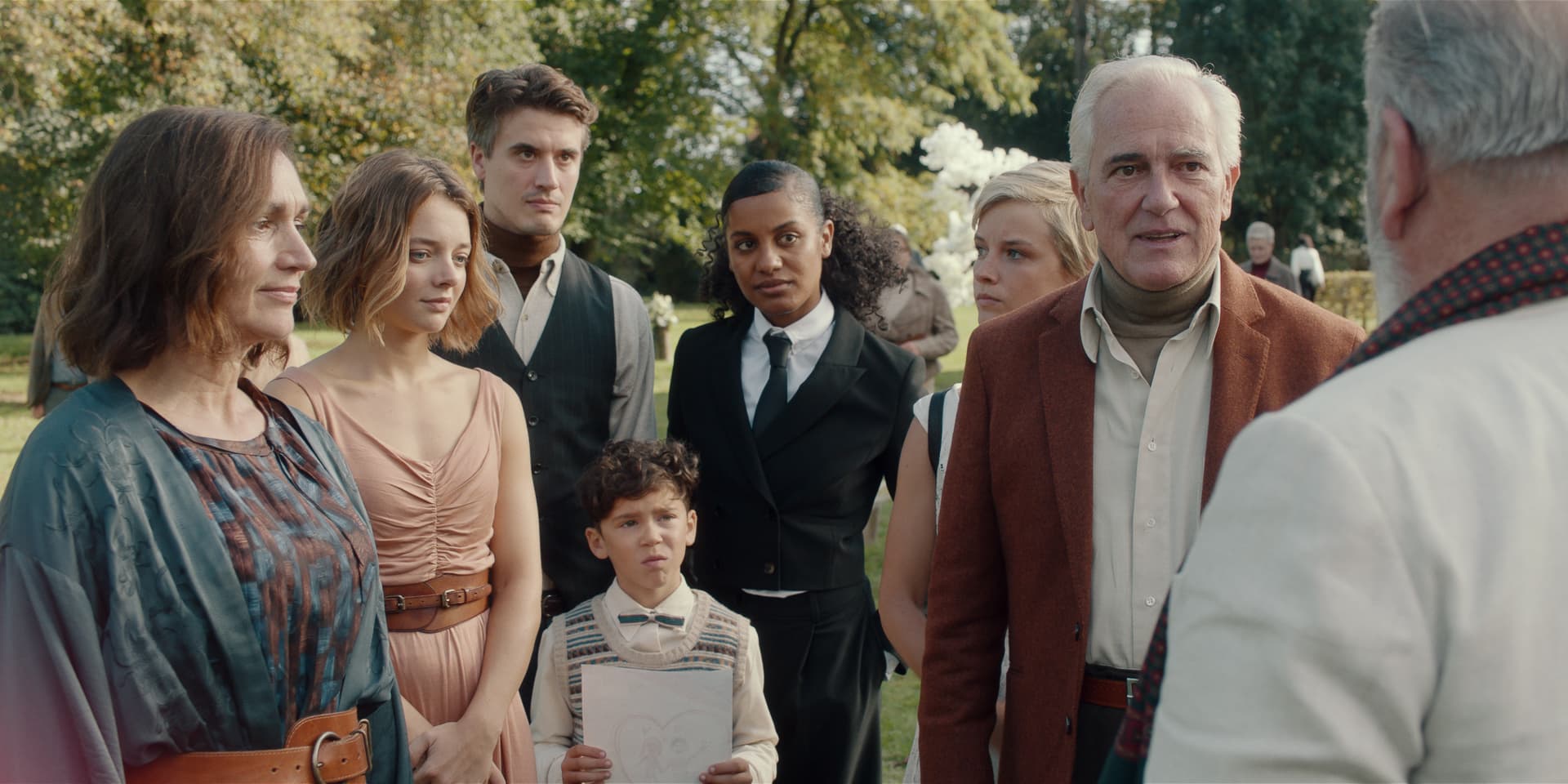
December 19, 2024
Flemish creativity on the global stage: how VRT’s stories transcend borders
From High Tides to The Backpack of Life: Flemish programs are conquering the world. Thanks to strong stories and creative formats, VRT succeeds in making local productions shine internationally. Since 2017, series such as Salamander, Hotel Beau Séjour, and Tabula Rasa have opened doors to a broader audience and led to the establishment of a new department: VRT Sales. Now, VRT continues this trend with innovative programs that resonate both locally and globally. The result? Flemish fiction and entertainment that transcend borders and put Flanders on the map as a creative player.
High Tides: Flemish success on a global scale
The drama series High Tides (Dutch title: Knokke Off) quickly became a hit in Flanders, but thanks to a collaboration with Netflix, it evolved into a worldwide sensation. The series combines universal themes such as love, friendship, and identity with a unique Flemish touch. “High Tides is a perfect example of how we create strong local stories that also have international appeal,” says Ruben De Vis, responsible for international partnerships related to television concepts and entertainment at VRT.

The success of High Tides is no coincidence but the result of a deliberate strategy. VRT actively collaborates with production companies, streamers, and distributors to give Flemish stories a platform on the global stage. According to Ruben, the key lies in the authenticity and relevance of the stories. “A series like High Tides feels relatable to young people worldwide. The themes are universal, but the setting and style are unmistakably Flemish. This mix proves to work internationally.”
New successes on the horizon
Following the success of High Tides, VRT presents The Backpack of Life (Dutch title: De Rugzak), an innovative format by production company Geronimo, airing in Belgium starting December 26. Eight well-known Flemish personalities climb Mount Kilimanjaro, closely followed during this physical and mental adventure. Personal items in their backpacks lead to meaningful conversations full of emotion and connection. Thanks to innovative camera technology on their backpacks, no emotion is lost, creating pure and authentic television.

“The combination of technology, authenticity, and emotion makes The Backpack of Life so special,” says Ruben De Vis. The program immediately drew attention at the television and entertainment fair MIPCOM in Cannes, where it was highlighted during the prestigious ‘The Wit’ session. “We see that it resonates internationally and are in active negotiations with various countries,” Ruben notes.
The Flemish viewer remains central to the international story
Despite international successes, the public broadcaster primarily creates programs for the Flemish audience. Ruben De Vis: “Together with the strong Flemish creative sector, we aim to elevate our programs and approach them with an international perspective. When developing new programs, we always ask, ‘Are there connections to other countries that allow for natural collaborations?’ Based on this, we determine which parties to collaborate with and how to make the program work internationally. And it succeeds—many formats and series begin to ‘travel’ from there.”
How Flemish series achieve international success
Naturally, it’s difficult to predict in advance whether a series will become an (international) success story. “There aren’t specific elements that guarantee success. What resonates today might not be relevant in two years. The audiovisual sector is highly volatile, with trends evolving quickly. We try to stay updated by attending international fairs, keynotes, and award shows, and by following newsletters that share daily trends,” says Ruben De Vis.
According to Ruben, several factors can increase the chances of success. “The foundation lies with a strong team of producers, directors, and writers who use their experience and talent to bring stories to life. Additionally, creative production companies play a crucial role by delivering unique and innovative stories that surprise the audience. The strength of a diverse and top-notch cast also ensures necessary relatability in the roles they portray. The story must be universally applicable and not feel overly local. Lastly, addressing societal or cultural themes relevant to a broad audience is a significant asset.”
These elements together form a solid foundation but remain just a piece of the puzzle. Ultimately, the audience is the determining factor in what evolves into a (international) success story.
VRT builds a strong international network
To achieve significant international successes, you need a strong network. VRT has heavily invested in this in recent years: “Over the years, we have built a strong network of partners through the European Broadcasting Union (EBU), with public broadcasters, and with international distributors, streamers, and producers. These partnerships are built on trust and aim to create strong content together and give it an international platform,” says Ruben De Vis.

“In the past, we collaborated more with international streamers like Netflix. High Tides is a beautiful example of that. Meanwhile, these players have shifted their focus more to American blockbusters and less to local titles. This forced us to look for other partnerships, such as closer collaborations with other public broadcasters like NPO (Arcadia) or RTBF (1985). New8 is also one of these partnerships, connecting seven European broadcasters to produce at least one series per year with international allure, guaranteed to be purchased by the other broadcasters. This means that one Flemish series per year benefits from this extra international funding.”
Flanders as a creative hub
Where VRT was once a small player in the international market, the public broadcaster has built a strong reputation within Europe in recent years. “Not only has VRT made its mark,” says Ruben De Vis, “but the entire Flemish media sector is now seen as an underdog that achieves many successes and scores internationally at award shows.”
VRT aims to further position itself as an international player in the coming years, with a focus on Europe. “We want to remain a reliable supplier of quality and creative content while strengthening our position by taking on more international deals ourselves,” Ruben explains. The revenue VRT generates is reinvested into the Flemish creative sector, creating room for new, original ideas that inspire locally and travel internationally. “In this way, we not only strengthen VRT but the entire Flemish media sector,” concludes Ruben.


